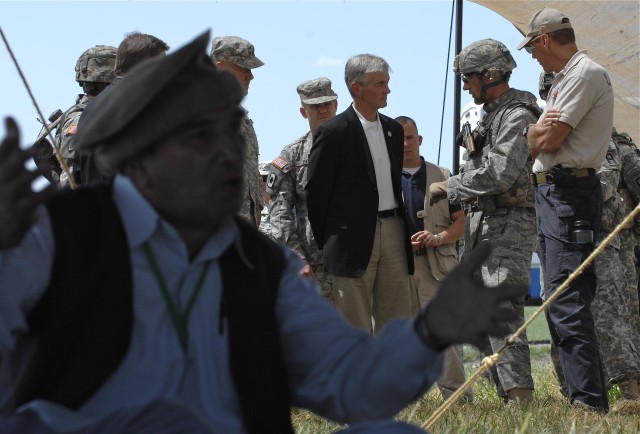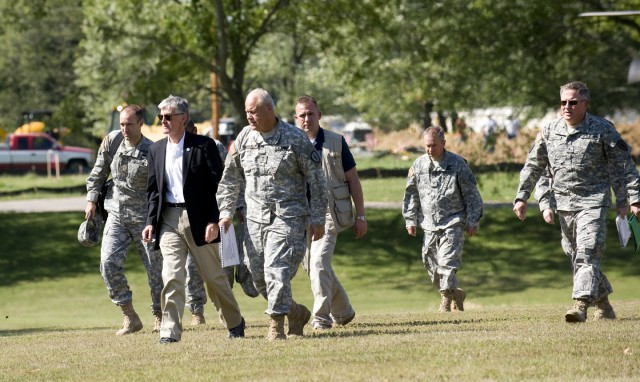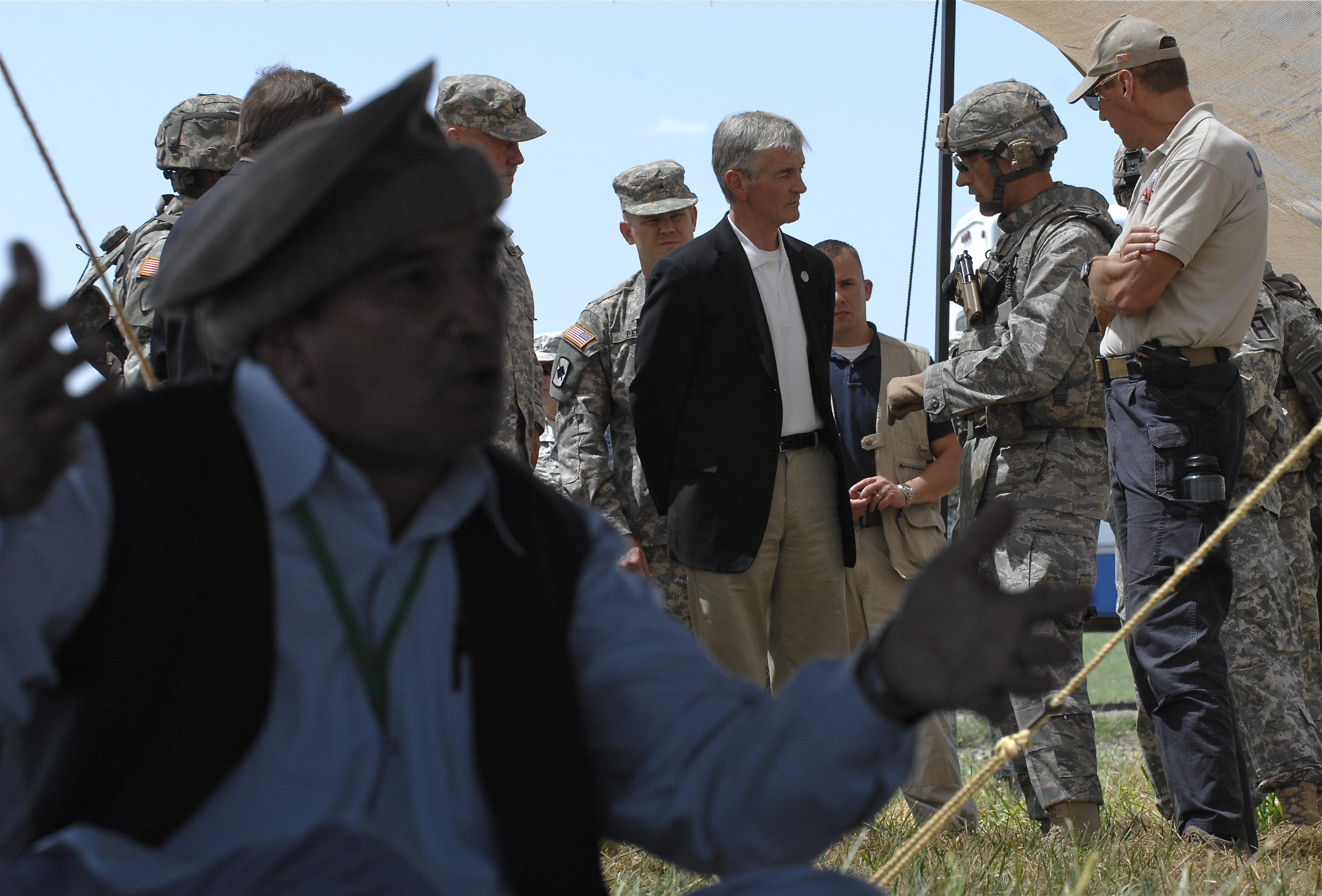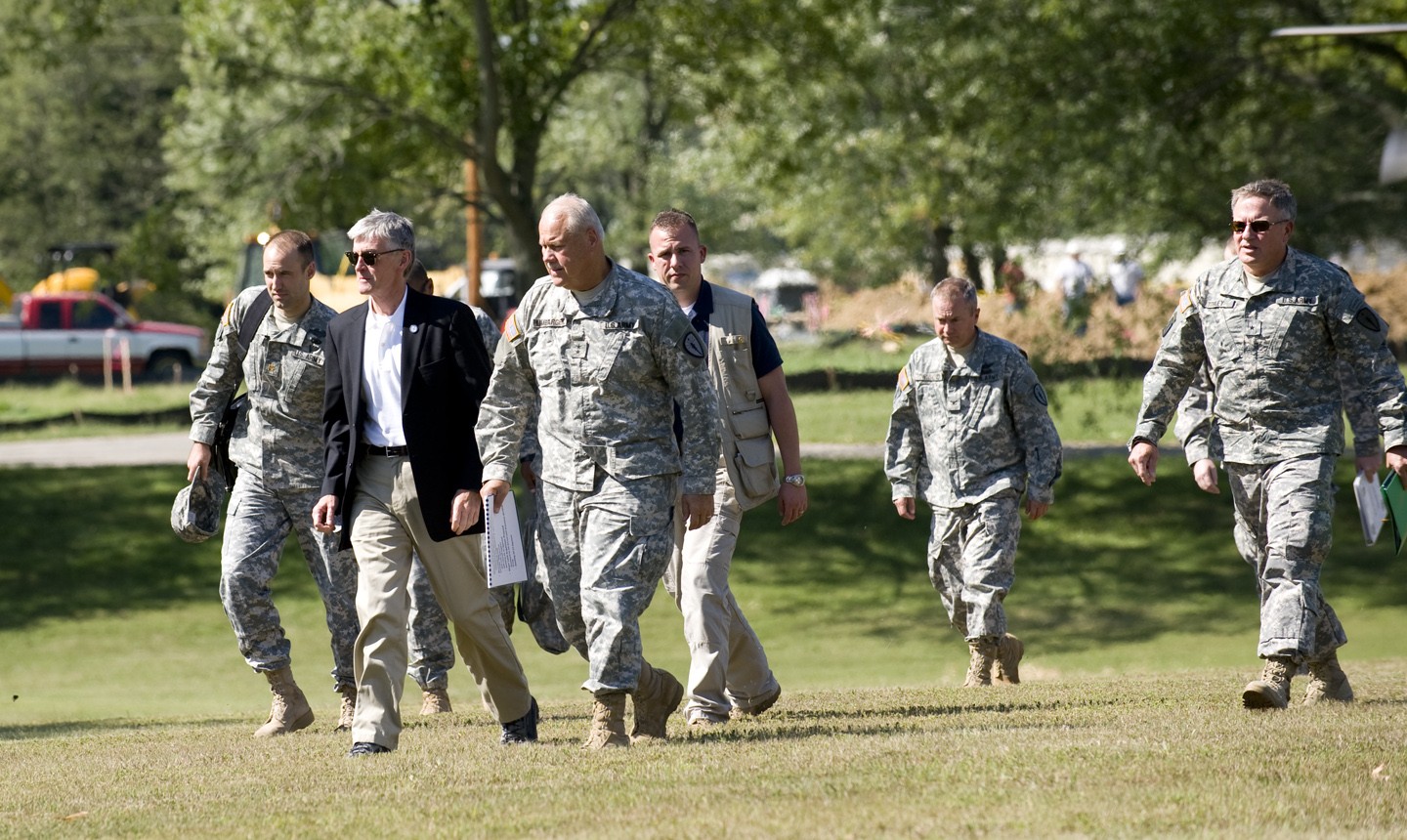Secretary of the Army John McHugh visited Camp Atterbury Joint Maneuver Training Center and Muscatatuck Urban Training Center Aug. 18 to meet with mobilizing and demobilizing servicemembers, permanent party leadership and civilian expeditionary workforce contractors and employees.
Camp Atterbury, a national deployment center, has mobilized and demobilized more than 100,000 servicemembers for deployment since the attacks on Sept. 11, 2001.
McHugh, who began his tour at the Muscatatuck Urban Training Center, said the two training centers discharge their mission in a way that should make them an integral part of our military training for many years to come.
"The uniqueness that exists at Muscatatuck and that urban setting is unequal to anywhere that I've ever witnessed in the United States Army," said McHugh. "It's the flexibility and ability to build upon it and create a huge variety of [training] scenarios."
McHugh had an informal lunch with troops training at Camp Atterbury to thank them for their service, recognize their contributions and hear what their concerns were. McHugh then toured Camp Atterbury facilities and observed a Provincial Reconstruction Team preparing for deployment to Afghanistan.
As part of the real-world scenarios, Dari and Pashtu speakers are incorporated into the training events to add realism and to assist in cultural immersion training. PRT members, who come from the Air Force, Army, Navy and civilian agencies, are chosen for their specialties, which support the core mission of enabling Afghan governance and development.
"The work that they do once they've trained here and forward deployed is vital in building that trust that is necessary for success in these kinds of theatres," said McHugh. "[Afghans] want the same things most folks want, and that is just a better chance for a better tomorrow.
"To do that, they need things, from roads to food projects to water projects, etc. The PRTs are a way in which we can begin to convey America's interest about them as a people and not just there simply as a conqueror or an occupier."
McHugh said it's "uplifting" to see the strategies of the nation's leadership being realized at Camp Atterbury and Muscatatuck Urban Training Center in training vignettes that are preparing people to go over and do important work.
Army Maj. Gen. R. Martin Umbarger, the adjutant general of the Indiana National Guard, thanked the secretary for visiting the center.
"We're very proud of these facilities and our mission to train Sailors, Soldiers, Airmen and Marines to go off to war," he said. "It's something we take very seriously."




Social Sharing